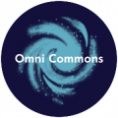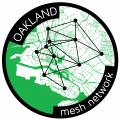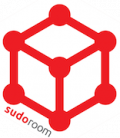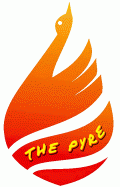|
|
Over the past two years of conducting online ethnography, I’ve collected quite the bevy of resources I’ve come to think of as the cyberanthropologist’s toolkit. Adjust your bookmarks accordingly:
Alexa Web Information Inc; is the definitive source for website traffic data. Besides providing more general statistics such as world traffic ranking and total hit count, the site also breaks down the percentage of visitors by country, changes in ranking over the past three months, and average number of page views per visitor. Great tidbit for a footnote when introducing a website in your research.
The Pew Internet & American Life Project has been conducting surveys and analyzing online trends since 2000. Their extensive reports are archived on the site, and encompass the following categories: online activities & pursuits; demographics; Internet evolution; technology & media use; health; family, friends, & community; major news events; public policy; e-gov & e-policy; education; and work. I would recommend this site for anyone interested in changing attitudes over time, or merely as a source of inspiration for those searching for a controversial issue to explore.
Providing an historical overview is critical to any in-depth research. Nicole Ellison and danah boyd have put together a fantastic history of social network sites, which details the evolution of Friendster, MySpace, and Facebook, among others. Additionally, Facebook provides an official, month-to-month timeline of important events in the site’s history. Though I can’t vouch for its credibility, I was able to locate a blog post that details the evolution of MySpace.
Finally, my blog WebnographY contains a plethora of literature reviews on the topic of online ethnography, as well as links to my past research projects and assorted random musings. Find links to a variety of pertinent articles on my Resources page. Cheers!
Can you tell I’m pretty deeply immersed in the world of academic research these days? Sharing is caring, and I’d like it to be known that I support collaboration over competition when it comes to the production of knowledge. As such, I encourage you to forward this post to anyone you know who could use it (especially thesis writers).
1. EndNote Web – You may have heard of EndNote- a comprehensive program for organizing citations and creating bibliographies that is used extensively by thesis writers- but you probably didn’t know that you don’t need to download or buy the expensive program (sold online for $250), which has numerous compatibility issues, anyway. EndNote Web is, first of all, FREE, and secondly, maintains your personal database of citations online. So if you, like me, are poor and unable to obtain a compatible version of the program through the school’s software database, this online program is a godsend. Furthermore, with EndNote Web you can also search online journal and library databases within the site. Sweet.
2. bubbl.us – When crafting a paper, it can really help to visually outline it before you write. The best tool I’ve come across is bubbl.us, which allows you to fill in little bubbles and link them to one another either horizontally or vertically (see screenshot, below). In addition, you can share your bubble diagrams with others, and even let them collaborate in the outline’s construction. I always use this site to outline my thesis chapters, which I’ve shared with my advisor in the past.

3. Diigo – A really fantastic social bookmarking and annotation tool. Like del.icio.us, Diigo arms you with web browser toolbar that lets you publicly share and organize your website bookmarks. However, Diigo expands upon this premise by allowing users to highlight, clip, and make sticky-notes on the websites you bookmark- and this makes it a powerful research tool (especially if you’re me- prone to bookmarking websites that mention anything having to do with my thesis, and forgetting why they were important later).
4. The OWL at Purdue – This website is a must for anyone confused about the variety of citation styles and the rules for composing bibliographies. It extensively outlines MLA, APA, ASA, and Chicago styles, and in addition discusses various research issues. Most useful, in my opinion, is this page, which contains links to online guides for documenting electronic sources in various disciplines.
5. SurveyMonkey – This is the best free survey-generator I’ve come across, and I used it last year when conducting a survey on online social networking practices. The free version of the software lets you compose 10 questions, which can be multiple-choice, a rating scale, a matrix selection, or open-ended. You can also make it kinda pretty. After you make it, SurveyMonkey will help you collect responses by creating e-mail invitations, website popups, or simply a copy-and-paste link. You can also view responses, which are neatly organized for easy analysis.
These past few weeks have been a rush of novel experiences, as I reconfigure my identity in an extremely pointed way. I have been meeting so many new people, and first conversations almost inevitably touch upon my research, which is essentially what i do (who i am?) right now.
As a result, I’ve taken to carrying a digital voice recorder in my pocket. It’s mere presence has a similar effect on me as speaking in front of a crowd of people: intense social phobia. I treat the object gingerly, awed by its potential to preserve the situation so very perfectly in a peculiar mode. Tonight, a friend who promotes his tracks on MySpace spoke of Google’s vast database of categorized interest nodes, sending advertisements directed uniquely at his individual identity as derived from his web browsing habits. Google’s rumored launch to “out-open” Facebook– that is to say, become the next leading online social network, is of particular interest to me, as is the increasing popularity of niche social networking sites, blogospheres, and Second Life.
I am conducting a short survey for users of Facebook, MySpace, and/or Tribe.net.
Your participation in this survey is entirely voluntary, and you may terminate participation at any time prior to the completion of this survey without penalty. Please understand that the information you provide will be viewed only by the researcher, and that any responses published will not enable identification of me in any way.
Questions and concerns can be directed to Jenny Ryan (researcher) @
jaryan@wesleyan.edu.
Further information and future publications can be found at http://webnography.blogspot.com
I Agree, Continue to Survey!
|
|





